URGENT TRANSITION TO SUSTAINABLE AGRICULTURE VITAL FOR FOOD SECURITY IN SRI LANKA, SAY FAO, IFAD, AND WFP
COLOMBO, 17 October 2023 – The Food and Agriculture Organization of the United Nations (FAO), together with the International Fund for Agricultural Development (IFAD) and the United Nations World Food Programme (WFP), marked World Food Day by calling for urgent action towards sustainable and climate-resilient agriculture in Sri Lanka.
In a 2021 report by FAO and UN Water, Sri Lanka was classified as ‘highly water stressed’ with a 90.8% indicator, reflecting the significant pressure from human activities on its freshwater resources and their sustainability[1]. Total freshwater withdrawal in Sri Lanka is estimated at 12.95 billion m3 annually with about 82% of the total withdrawal used for paddy irrigation alone and a little over 5% used to irrigate other crops[2]. Sri Lanka also ranks consistently high on the Global Climate Risk Index, particularly in terms of climate risks associated with impact on water resources.
Considering this the UN food agencies (FAO, IFAD, and WFP) highlighted the urgent need for Sri Lanka to transform its agrifood systems at an event held to commemorate World Food Day under the auspices of the Minister of Agriculture Hon. Mahinda Amaraweera. The event highlighted the modern approaches supported by the agencies with potential for national scale-up towards sustainable and climate-resilient agriculture. The voices of young people were also amplified at the event through debates, art, and a special address by youth climate activist Tharika Fernando.
In his keynote address, Minister of Agriculture Hon. Mahinda Amaraweera reaffirmed Sri Lanka’s unwavering dedication to achieving food security for all. He emphasized the importance of agriculture and food security as national priorities and stressed the government’s commitment to bolstering the agricultural sector to withstand future climate-induced challenges. The Minister also expressed gratitude for the technical support provided by the UN food agencies in this endeavor.
Speaking at the event, UN Resident Coordinator Marc-André Franche stated “In the face of increasing water stress and climate vulnerabilities, sustainable and climate-resilient practices are not just an option; they are a necessity. The United Nations continues to work together with Sri Lanka to fortify its water and food systems and is committed to ensuring a future where everyone has access to sufficient and nutritious food, and where no one goes hungry.”
FAO Representative for Sri Lanka and the Maldives, Vimlendra Sharan emphasized the organization’s commitment to helping Sri Lanka transform its agrifood systems. “FAO is committed to working with the government to ensure that Sri Lanka’s agriculture and fisheries sectors are climate-resilient to ensure food security in Sri Lanka for generations to come. We are working with farmers and fishers across the island to reduce waste, pollution, and climate vulnerabilities,” he said.
Sherina Tabassum, IFAD’s Country Director for Sri Lanka and the Maldives, “Climate change has made availability of water for agriculture precarious. Small-scale farmers sometimes do not have enough water, and other times too much. That makes irrigation systems increasingly important, so small-scale farmers can continue to produce food with uninterrupted water supply. IFAD works with the government and farming communities to enable farmers to access innovative technologies such as solar-powered tanks as well as to rehabilitate traditional methods like tank cascade systems, so that farmers can cultivate around the year, helping them move from low-productivity subsistence farming to irrigated agriculture that feeds the country.”
“Food security has been in the spotlight in the recent past, but too often we forget that there is no food security without water security,” said Gerard Rebello, Deputy Country Director and Officer in Charge at WFP, Sri Lanka. “WFP, together with our partners, is supporting the Government to make food systems more sustainable and resilient to extreme weather conditions, with emphasis on improving the livelihoods of smallholder farmers, so that food travels uninterrupted from farm to table all year long.
FAO, IFAD and WFP together with the United Nations system in Sri Lanka are on the ground actively promoting sustainable and climate-resilient approaches towards food security in Sri Lanka.


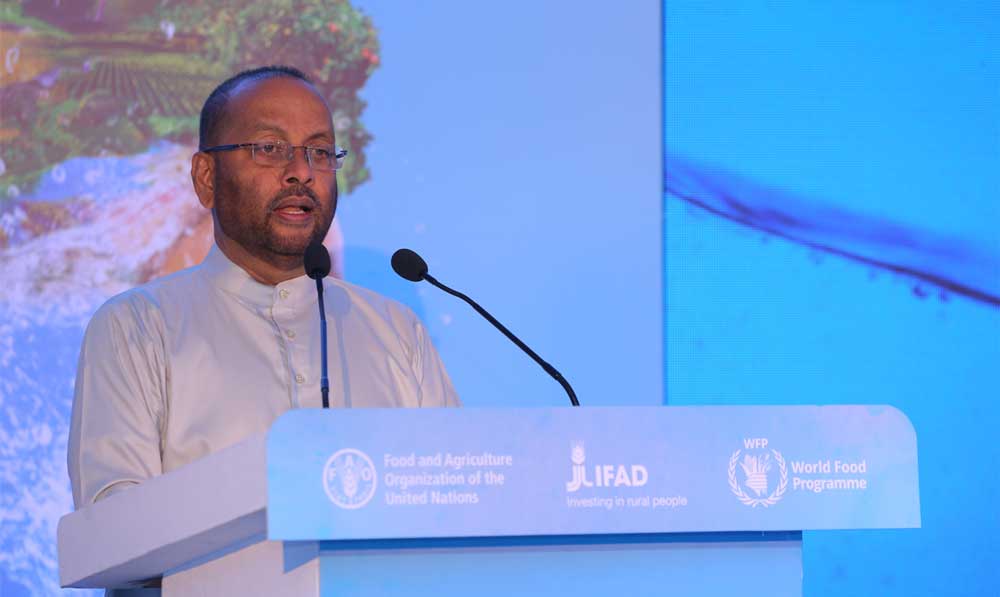
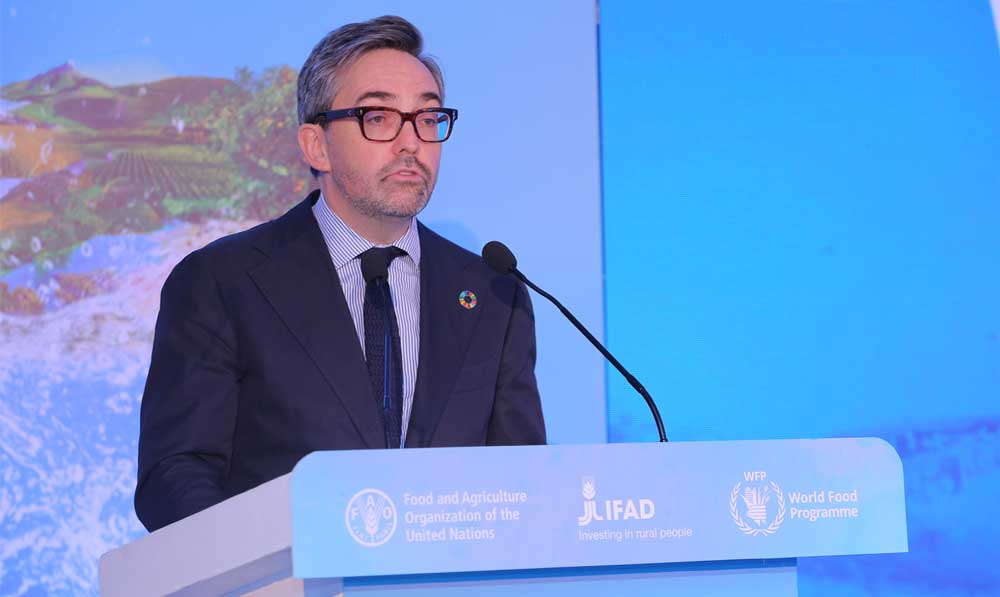
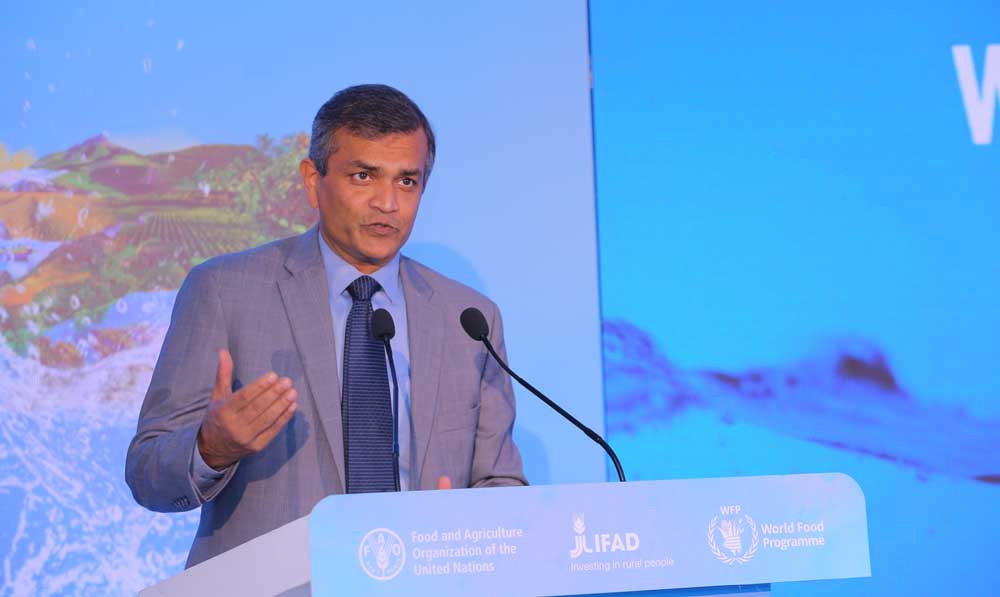
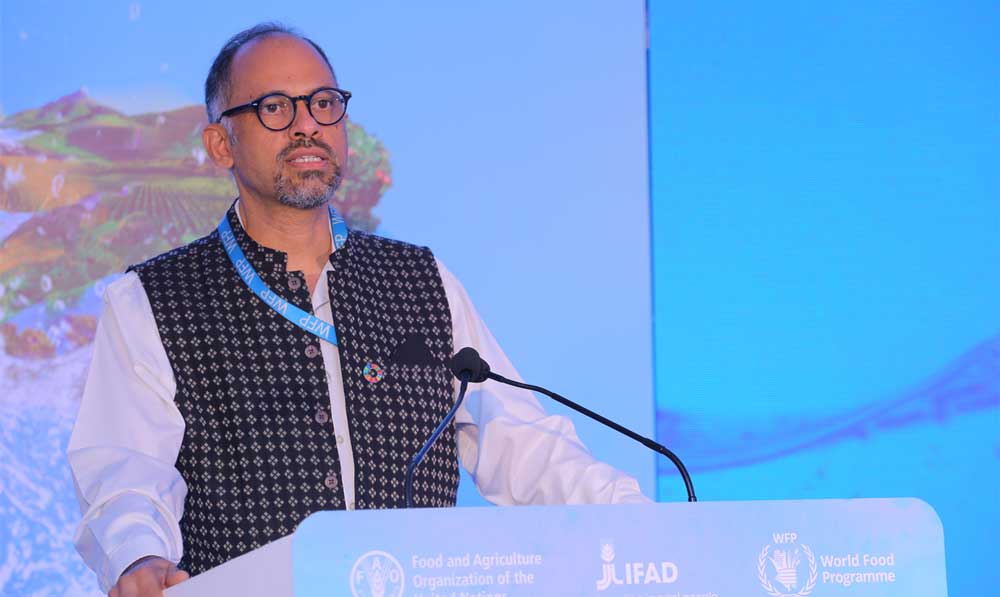
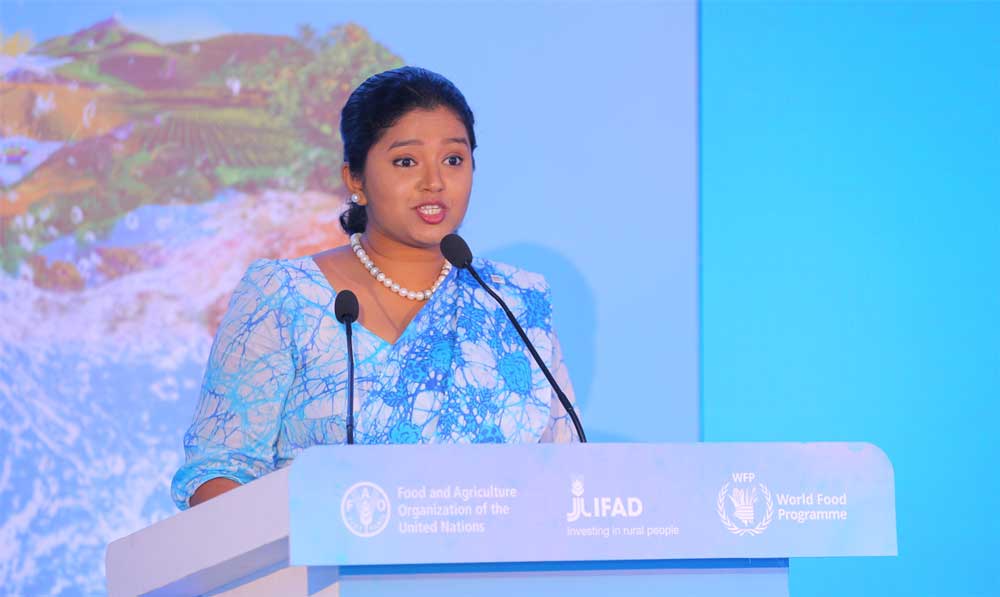
About FAO
The Food and Agriculture Organization of the United Nations (FAO) leads international efforts to defeat hunger. It helps countries modernize and strengthen agriculture, forestry, and fisheries practices, making them more sustainable and ensuring food security & nutrition for all. FAO focuses special attention on developing rural areas, home to the majority of the world’s poor and hungry people. For more information visit: www.fao.org or follow FAO on Twitter @FAOnews @FAOknowledge
About WFP
The United Nations World Food Programme is the world’s largest humanitarian organization, saving lives in emergencies and using food assistance to build a pathway to peace, stability and prosperity for people recovering from conflict, disasters and the impact of climate change. Follow us on Facebook, Instagram and Twitter @WFP_SriLanka
About IFAD
IFAD is an international financial institution and a United Nations specialized agency. Based in Rome – the United Nations food and agriculture hub – IFAD invests in rural people, empowering them to reduce poverty, increase food security, improve nutrition and strengthen resilience. Since 1978, we have provided more than US$23.2 billion in grants and low-interest loans to fund projects in developing countries. Last year, IFAD-supported projects reached an estimated 130 million people.
A wide range of photographs of IFAD’s work in rural communities are available for download from its Image Bank. Follow us on Twitter @IFADSouthAsia
For more information please contact:
Dilshani Dias, FAO Sri Lanka, Communications |Tel: +94 77 015 2424 |Email: Dilshani.Dias@fao.org
Tanya Jansz, WFP Sri Lanka, Communications | Tel: +94 7691 02462 | Email: tanya.jansz@wfp.org
Yamini Lohia, IFAD Communications | Tel: +91 9811109907 | Email: y.lohia@ifad.org
